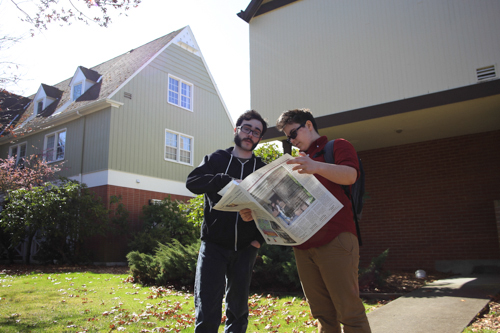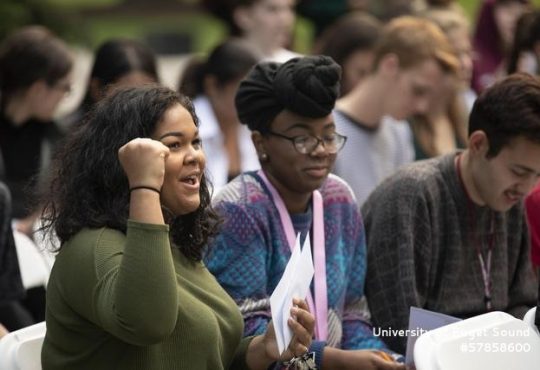
In Puget Sound’s effort for increasing diversity, student medias and campus publications alike have been the vehicle lately for the ongoing discussions that help to define what diversity means on this college campus.
From conversations about homophobia and exclusivity in Greek Life to innovative interdisciplinary courses such as the current Queer Cultures class, both Puget Sound’s students and faculty are ready and willing to create and participate in productive dialogues to facilitate diversity. Mariana Molina has written a letter addressed to the faculty and administration at Puget Sound, published on March 14 in The Trail and Wetlands Magazine, in which she explains why she believes the University is unprepared to support a diverse student body.
“The university lacks a support system for students of color. This is lacking both within the student body, but most importantly it is lacking within the faculty,” Molina wrote.
Molina explained in her letter that she was brought to the United States by her parents in such a way as to make her an “undocumented” citizen. This status severely limited her access to a multitude of activities, including getting a license or boarding an airplane. “Alienation is not a new sentiment in my life, but I have managed. I’ve learned to create a sense of community for myself. Never, however, have I felt as isolated as I have during my time at Puget Sound,” Molina wrote.
In her letter, Molina explained the responsibility that she feels as a student of color to explain privilege and racial issues, but without participation or support from faculty and students.
“There is resistance to conversations of race/ethnicity, privilege, and power. Often times, we do not engage with these topics due to the discomfort of the majority. In doing so, we are silencing the already isolated and alienated voices on campus,” Molina wrote.
She brought up how the topic of race silenced discussion, and how faculty members told her that it was her job to speak up during that silence. In Molina’s words, her professors implied that by speaking for her, they could be taking away her agency.
“What [the faculty] fail[s] to understand—beside the fact that the use of these terms are OUR problem and not just my own—is that on this campus, I’ve never felt safe speaking up,” Molina wrote. “Speaking up results in feeling alienated.”
A similar message was shared by alumna Sandra Rosa Bryant in the Aug. 2012 issue of Arches magazine.
“When asked about my time here, I can never hitch on that broad smile that so many of my peers wear and make proclamations about how wonderful life was,” Bryant said.
“I did not enjoy the hypervisibility, the feelings of being an outcast, and the expectations of my peers for me to break down and explain to them ideas about privilege, prejudice, and, essentially, how it feels to be black in America.”
In both letters, Bryant and Molina express the same issue: students of color are constantly expected by their peers to explain their experience without support from other students and faculty.
Both articles convey the burden that students have to carry by being in such a position, and how that burden affected them personally.
“As a product of faculty not being willing to advocate on behalf of students during these moments, the burden then falls onto the student. And let me tell you, the burden is enormous,” Molina wrote.
“We did not come here to teach; we came here to learn,” Bryant wrote.
Bryant also wrote about other experiences shared by students of color, and how the responsibilities that came with having to teach left them exhausted. The isolation brought about by being placed in that position became another barrier for students at Puget Sound.
“I do not doubt that the time will come when I too will miss the University of Puget Sound, but I do not know when that time will come and I do not know what it is about the university that will be strong enough to turn my reminiscing and musing into longing,” Bryant wrote.
“I am leaving UPS angry and disappointed,” Molina wrote.
“As things stand now, I will not recommend this university to other undocumented students or students of color. What I have written here is only my own experience but certain aspects of my letter have resonated and continue to resonate with other students.”
In moving ahead in creating a diverse campus, Molina encouraged a diverse faculty, where professors are able and willing to engage students in topics that may be uncomfortable.
While Puget Sound professes to encourage diversity, it is evident that there is disagreement within the student body. Faculty and students of color must reach a middle ground where conversation can be reached with both parties engaged and active.
While diversity can sometimes seem like an overused buzzword, the members of the Puget sound community are committed to discovering and defining what exactly makes our campus the unique and tolerant place that it is.






